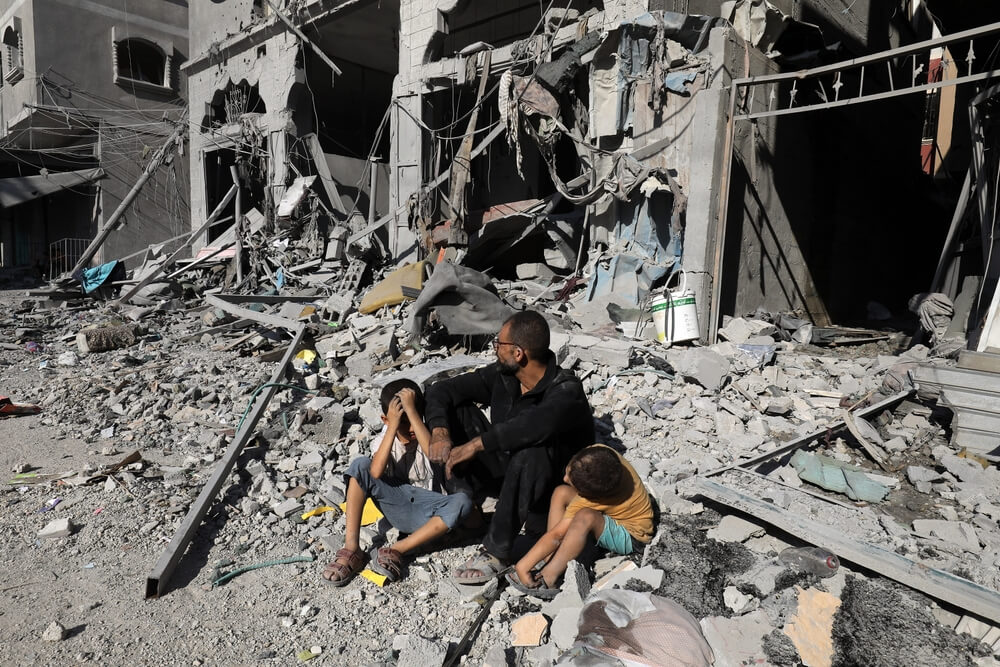Just like six years ago, after the presidential inauguration, Vladimir Putin will make his first international visit to Beijing.
For the Chinese hosts, who pay attention to symbols in political communication, this message from the Russian head of state should be a sign that Russia's partnership with China is a top priority.
This is Vladimir Putin's intention, but will Beijing interpret his wish similarly?
Just over a year has passed since the last bilateral meeting between Putin and Xi Jinping in Moscow. The two also met in Beijing in October last year, but as part of the Belt and Road Forum.
Similar to how there was talk of an "eternal friendship" between Russia and China in Moscow a year ago, there will undoubtedly be rhetoric of closeness and great friendship accompanying Putin's forthcoming visit to Beijing.
However, the period between two meetings has created a different atmosphere for a new meeting, and perhaps the status of "eternal friendship" has changed.
Different interests
The Russian invasion of Ukraine marked the last meeting between the two leaders in March of last year. This time, the crisis is a year older, and China has been facing intense pressure to re-evaluate its alliance with Moscow and, more specifically, to stop exporting goods to Russia that might have a military purpose.
Two-way trade has exploded over the last three years, exceeding the target of $200 billion by $40 billion by the end of 2023. Russian gas exports to China increased 1.5 times in 2023 compared to 2022. Russia continues to be China's primary oil supplier, as evidenced by the approximate 13% growth in exports during the first quarter of 2024 in comparison to the corresponding period in 2023.
However, trade in energy products has been taking place under unfavourable conditions for Russia, given that China has remained its last hope since Europe ceased procurements.
Russia will primarily focus on energy issues in the forthcoming talks between the two heads of state
However, Russian producers cannot compensate for the loss in Europe by increasing supplies to China, which is due to China's diversified procurements resulting from the substantial discounts it obtains by utilising the price limit for Russian oil on the global market.
Therefore, Russia will primarily focus on energy issues in the forthcoming talks between the two heads of state. At the heart of these ambitions is the construction of the "Power of Siberia 2" gas pipeline, which Moscow hopes will lead to a strategic increase in supplies to China.
Beijing, however, has long been indifferent to the project. China obtains gas from other sources, partly due to substantial investments but also political restraint.
While the new gas pipeline to China is critical for Russia to make up for the huge losses in gas exports to Europe, Beijing has reservations about the project's sustainability given the unenviable position of its economy and future gas needs.
Western pressure
The forthcoming Sino-Russian summit will take place under much stronger pressure from the West on China to reduce exports of sensitive goods, machinery, equipment, and electronics, which are also used for military purposes. The pressure is also enormous when it comes to circumventing sanctions against Russia, where China has taken the lead.
The last two visits to Beijing by senior US officials, Treasury Secretary Janet Yellen and Secretary of State Antony Blinken last April, were a direct warning from Washington that it would sanction Chinese companies that circumvent sanctions or support the Russian defence industry.
Between the two meetings, there was a cooling of the Chinese economy and an increased withdrawal of major Western investment from China
Between the two meetings, there was a cooling of the Chinese economy and an increased withdrawal of major Western investment from China, prompting Beijing's leadership to focus more on resolving issues where Moscow cannot help.
China's efforts to stop the withdrawal of American investors and generally stabilise economic relations between the two largest economies took centre stage at the meeting between Xi Jinping and US President Joe Biden in San Francisco last November.
The Middle East and peace in Ukraine
Putin's new meeting with Xi Jinping will also take place under the pressure of the Middle East crisis, where Beijing has been trying to balance things out and position itself neutrally. However, China's close relationship with Iran and even Russia, which strongly support the aggressive actions of pro-Iranian forces in the region, has burdened its involvement in the Middle East.
After its proclaimed neutrality regarding the Russian invasion of Ukraine, China's new neutrality regarding the crisis in the Middle East puts the country in a complicated position when it comes to choosing its geopolitical priorities.
 China's new neutrality regarding the crisis in the Middle East puts the country in a complicated position when it comes to choosing its geopolitical priorities
China's new neutrality regarding the crisis in the Middle East puts the country in a complicated position when it comes to choosing its geopolitical priorities
Under pressure from the West as a crucial economic partner to distance itself more decisively from the protagonist of one of these crises, Russia has less chance of retaining Chinese patronage than China's Middle Eastern partners do.
Ahead of the new peace talks on Ukraine, which will take place in Lucerne in mid-June under the auspices of Switzerland, the Sino-Russian summit is also taking place at a crucial time.
Beijing, as one of the participants in one of the most ambitious attempts to find a peaceful solution, is expected to exert pressure on Russia to achieve an internationally brokered peace.
Therefore, the Chinese head of state could exert pressure on Putin to accept cooperation with the international coalition that will gather in Switzerland. There are enough trump cards to deal with such pressure.